-

Hear from Professor Monica Toft
Learn how Professor Monica Toft is shaping the study of global affairs and diplomacy at Fletcher.
Hear from Prof. Toft -

Explore Fletcher academics in action
Fletcher Features offers insights, innovation, stories and expertise by scholars.
Get global insights -
Get application tips right from the source
Learn tips, tricks, and behind-the-scenes insights on applying to Fletcher from our admissions counselors.
Hear from Admissions -

Research that the world is talking about
Stay up to date on the latest research, innovation, and thought leadership from our newsroom.
Stay informed -
Meet Fletcherites and their stories
Get to know our vibrant community through news stories highlighting faculty, students, and alumni.
Meet Fletcherites -

Forge your future after Fletcher
Watch to see how Fletcher prepares global thinkers for success across industries.
See the impact -

Global insights and expertise, on demand.
Need a global affairs expert for a timely and insightful take? Fletcher faculty are available for media inquiries.
Get in Touch
2021 Mixed Media List
Winter 2021 Reading List
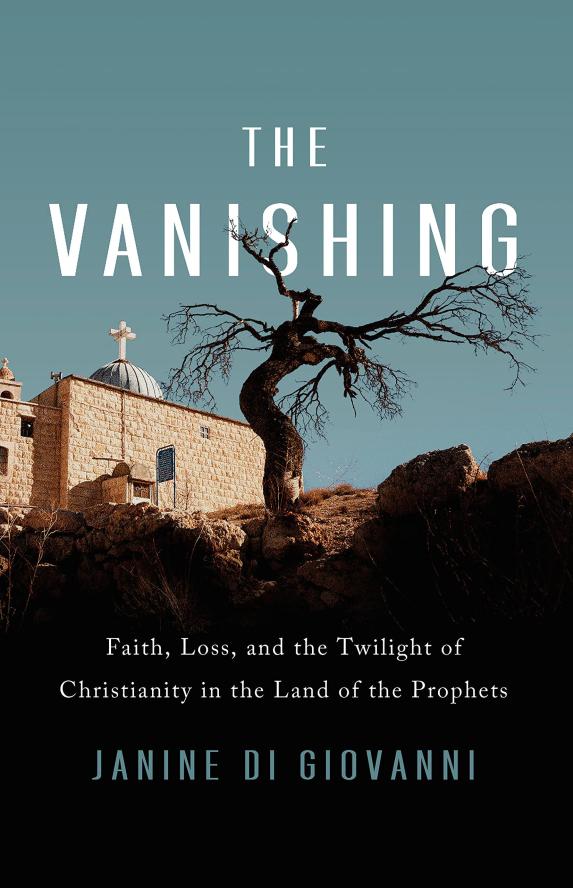
The Vanishing: Faith, Loss, and the Twilight of Christianity in the Land of Prophets
This eighth book from award-winning journalist and war correspondent Janine di Giovanni, F16, is a poignant, deeply personal account of what appear to be the last days of Christianity in the region where it first started—today’s Iraq, Gaza, Syria, and Egypt. A practicing Roman Catholic, di Giovanni takes readers to places “where Jesus Christ walked and preached” and where the ghosts of biblical tales can still be traced in the dusty roads and ancient rivers. The Christians she talks with have seen their friends and families driven away by Muslim extremists and a “bleak economic future.” The portraits she paints of them and of the land are a fitting requiem for a tradition that’s fading from view.
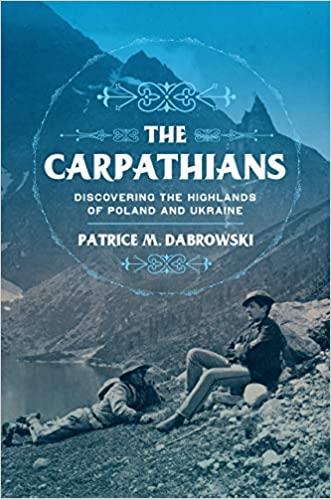
The Carpathians: Discovering the Highlands of Poland and Ukraine
Despite being the second most extensive mountain system in Europe (after their more glamorous and twice-as-tall neighbors, the Alps), the Carpathians were long considered terra incognita to lowland Slavs. That changed in the 19th century, when various portions of the Carpathians started being “discovered,” and today they are a popular tourist destination and regional icon. Patrice M. Dabrowski, F92, explores the environmental, sociological, and cultural “microhistories” of the area between 1860 and 1980 in this thoroughly researched, illustrated work
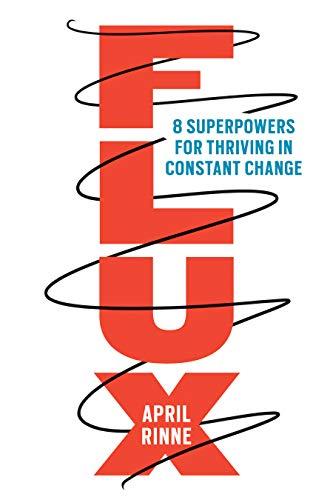
Flux: 8 Superpowers for Thriving In Constant Change
Futurist April Rinne, F04, started thinking about how to cope with unsought change in college, when she received a shocking call from her sister telling her their parents had been killed in a car crash. Afterward, she writes, she was “suspended in the unknown.” In this era of pandemic, environmental calamity, economic transformation, political and cultural upheaval, and technology-driven acceleration, it seems nearly everyone can relate to the confusion and lack of control she felt. This book gives readers looking to transform their careers, relationships, or worldviews a roadmap for coping and even flourishing amid change by cultivating a new mindset and “activating their flux superpowers.”
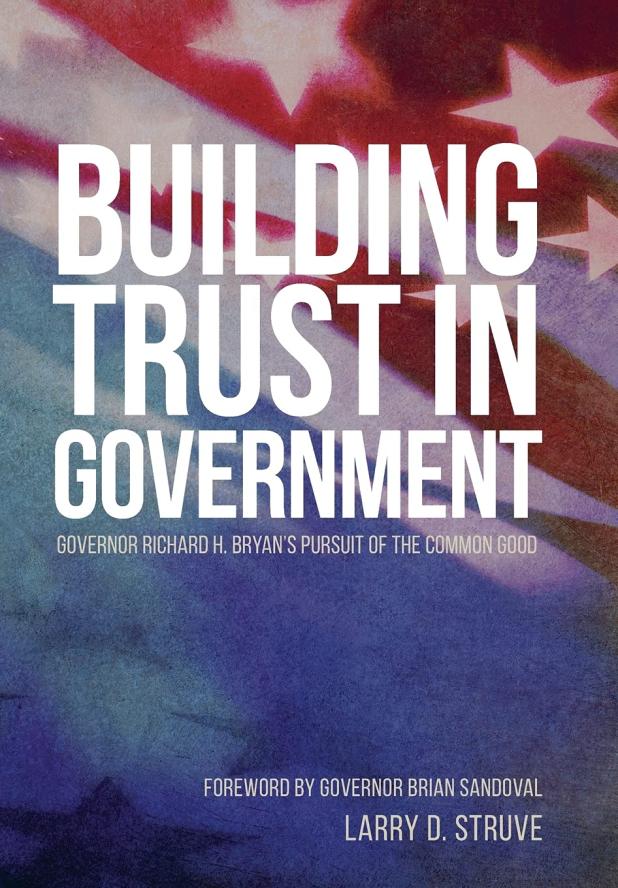
Building Trust In Government: Governor Richard H. Bryan's Pursuit of the Common Good
Larry Struve, F65, was director of commerce during Democratic Nevada Governor Richard H. Bryan’s administration, which began amid high unemployment, a national recession, and declining state gaming revenues and continued through most of the cash-strapped 1980s. Struve examines key events and situations that colored Bryan’s tenure and shows the “good governance” and decisions Bryan made to bridge the gap with Republicans to “overcome challenges in pursuit of the common good”—an idea that seems increasingly quaint in today’s political climate.
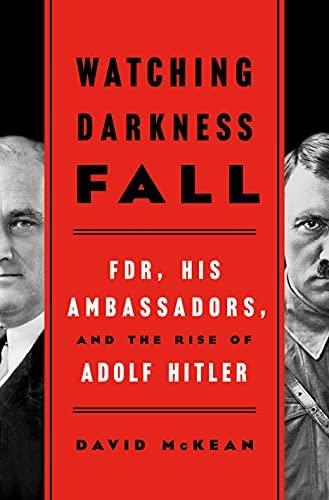
Watching Darkness Fall: FDR, His Ambassadors, and the Rise of Adolf Hitler
When Franklin Delano Roosevelt campaigned for the American presidency in 1932 it was on the platform of restoring prosperity to a nation devastated by the Great Depression. He had little sense of what was brewing in Europe, which was still reeling from its own social and economic chaos following the Great War, which had ended just 13 years earlier. In this fascinating history, David McKean, F86, recounts the experiences and views of FDR and his European ambassadors as Germany looked more and more toward a charismatic leader named Adolf Hitler for deliverance and got instead a horrifying fascism that would forever alter the global landscape. Also this year, McKean released, with co-author Bart M.J. Szewczyk, Partners of First Resort: America, Europe and the Future of the West, which outlines a path toward a political “transatlantic renaissance” that would repair the growing schism among countries of the Western alliance formed after World War II.
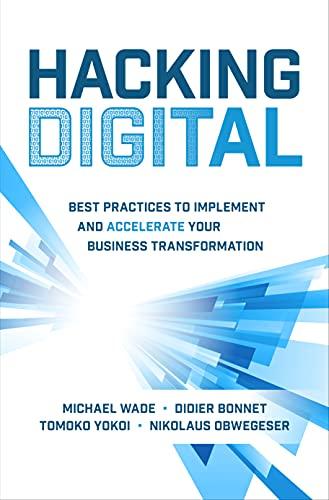
Hacking Digital: Best Practices to Implement and Accelerate Your Business Transformation
Written by Tomoko Yokoi, F98, and three co-authors, this practical guide for entrepreneurs and executives includes case studies and lessons from business leaders who have successfully implemented digital strategies. It clearly and directly communicates step-by-step approaches to topics including messaging, stakeholder buy-in, funding, infrastructure, digital governance, scaling, and more.
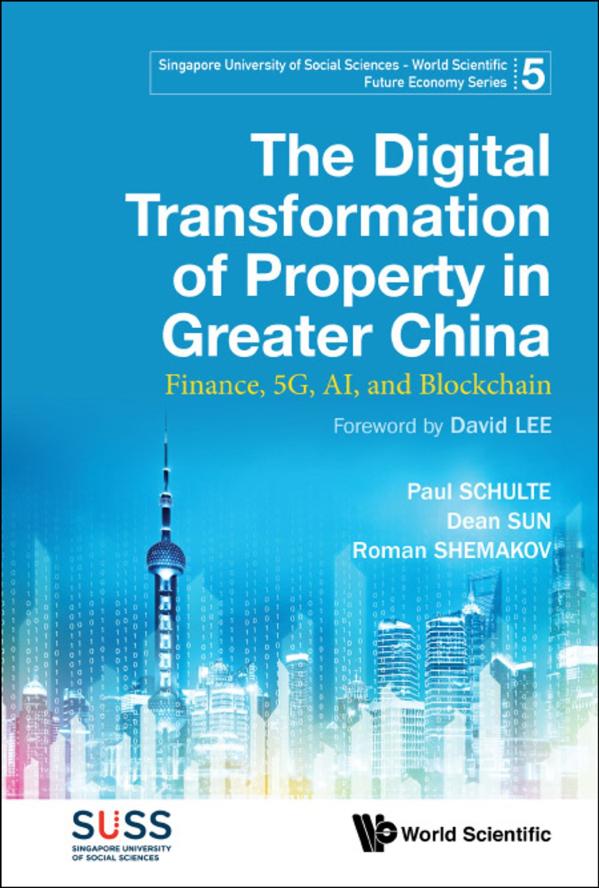
The Digital Transformation of Property in Greater China: Finance, 5G, AI, and Blockchain
New technologies have given physical assets “digitized wings,” and China is at the vanguard of this revolution, according to Paul Schulte, F88, a senior fellow at The Fletcher School and adjunct associate professor of finance at the Hong Kong University of Science and Technology, and his co-authors. “The global trade war is not just a re-ordering of technology,” they write, “it’s a re-ordering of cities,” as massive amounts of data from the built environment create new industries, uproot traditional finance, and transform the way we live. This erudite yet readable work looks at how major players and innovative start-ups are shaping the future. T
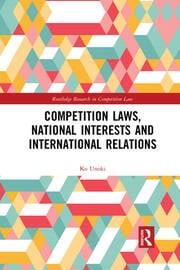
Competition Laws, National Interests, and International Relations
In this slim but research-packed and heavily footnoted volume, Ko Unoki, F02, an executive at PHC Holdings in Tokyo and the author of three other books, asks why no common global competition laws exist to protect consumers and prevent anticompetitive practices. He also analyzes cases relating to cartels, monopolies, extraterritoriality, and corporate mergers and acquisitions through the lens of international relations.
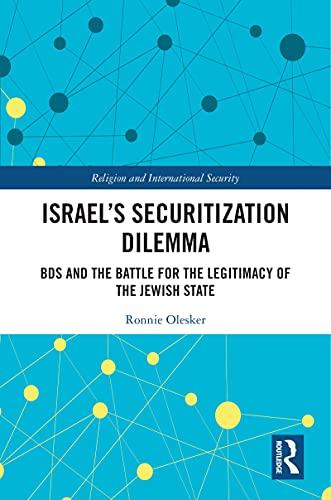
Israel's Secularization Dilemma: BDS and the Battle for the Legitimacy of the Jewish State
Ronnie Olesker, F03, F07, argues that Israel’s reactions to the Boycott, Divestment, and Sanctions (BDS) movement, which challenges international support for the country based on its treatment of Palestinians—as well as its response to the Arab League boycott begun in 1945 and to other efforts to delegitimize its international standing—have led to conservative policies that have essentially backfired by further undermining the country, particularly among liberals whose support is crucial for its continued legitimacy. This has become a vicious cycle, she says, that’s at the heart of Israel’s securitization and identity as a Jewish state.
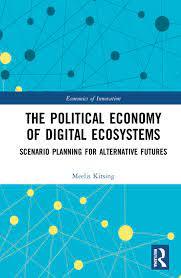
The Political Economy of Digital Ecosystems: Scenario Planning for Alternative Futures
Digital ecosystems—interconnected IT resources that can function as a unit—are still in their infancy, and how they develop will have a massive impact on the global political economy. In this book, Meelis Kitsing, F04, presents various scenarios, from the dominance of large private and government platforms, which could lead to a “splinternet,” to a decentralized system with private, community, local, national, and global solutions operating under various regulatory schemes, with many options in between. He emphasizes the need for governments to work through the implications of these scenarios to plan for possible alternative futures.
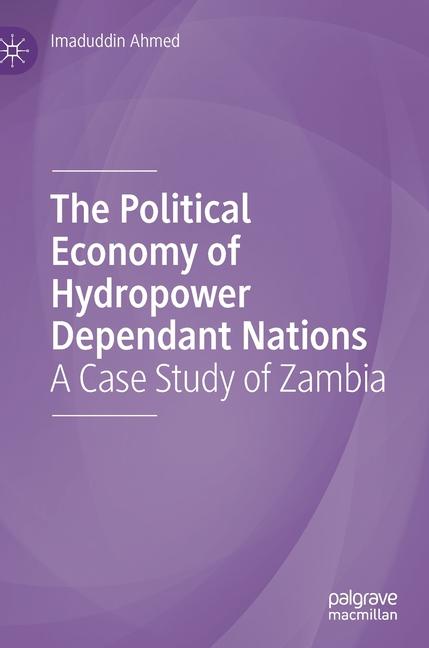
The Political Economy of Hydropower Dependent Nations: A Case Study of Zambia
Every year it becomes clearer that the disastrous effects of climate change are upon us. In this scholarly work, Imad Ahmed, F11, a research fellow at the University College London with a doctorate in infrastructure economics and finance, uses Zambia—one of 32 developing countries with a combined population of 1.4 billion that get more than a quarter of their electricity from hydropower—to examine just how sustainable hydropower is amid droughts and other extreme weather events. Ahmed also considers how hydropower can contribute to those events, what impacts can be expected as reliability is threatened, and what the policy response should be.
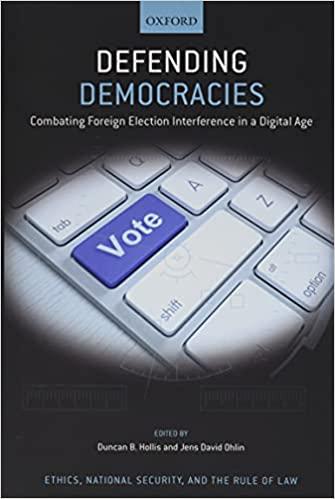
Defending Democracies: Combating Foreign Election Interference in a Digital Age
Temple University law professor Duncan B. Hollis, F95, and his co-editor, Jens David Ohlin, say the problem of election interference is “likely to get worse in the near future,” thanks in part to new digital tools that promote misinformation and disinformation and “malware that steals secret campaign communications.” With 16 essays and an introduction by the editors, this timely collection explores regulatory and other solutions—“international and domestic, legal and extralegal, ambitious and cautious”—to this “deeply urgent” problem that threatens the foundation of liberal democracy itself.
Winter 2021 Podcast List
The Diplocast: Fletcher Alumni on the Move
Greg Cooper, F01, is a voice artist based in Washington, D.C., whose podcast, started over Zoom during the pandemic, features “stories, insights and lessons from Fletcher alumni as they strive to make the world a better place.” So far he has talked with Susan Banki, F01, F07, a senior lecturer in Sydney, Australia, about her career in human rights; Lakshmi Karan, F00, F09, co-founder of the Future Frontiers Institute, incubated at NASA; “Renaissance man” Disaphol Chansiri, F00, F06, who has worked in Thailand’s government and also the arts; and Melanie Garson, F00, an internet policy expert and political science lecturer at the University College London.
At the Coalface
“At the coalface” is a British idiom that, according to the Cambridge Dictionary, means “doing the work involved in a job, in real working conditions, rather than planning or talking about it.” It is an apt name for this engaging podcast, in which host Philippe Rose, F14, talks with other graduates of Fletcher’s Global Master of Arts Program (GMAP). Current episodes feature Nino Kalandadze, F14, who grew up in Soviet Georgia and directs the Saakashvili Presidential Library; Samer Sobh, F16, co-founder and COO of DUBZ, an airport services company in Dubai; Fletcher School senior researcher Serhat Çubukçuoğlu, F15; and Christian Bachheimer, F18, who grew up in France but has spent decades as a business executive in Southeast Asia. Bachheimer also helps produce the podcast.
Raven on the Air
Jan Havránek, F09, whose name loosely translates to John Raven or Little Raven, is the Czech Republic’s deputy minister of defense, and in this podcast he does a deep dive on defense issues, international relations, transatlantic partnerships, global security in the wake of COVID-19, and more with guests including Carl Bildt, the former prime minister of Sweden, former U.S. Army general and CIA director David Petraeus, Brookings Institution president John R. Allen, and other international policy luminaries.
The Echochamber Podcast
GMAP alum Hezron Karanja, F21, started this podcast in March 2020, after quarantine began. The EchoChamber focuses on East Africa, and the current health, economic, legal, gender, and religious issues plaguing the region. Hezron and Angela interview experts to gain insight on salient concerns of East Africans, and the ramifications global policies have on citizens of the 9 East African countries. Their guests include Joyce Aluoch, a former judge for the International Criminal Court (ICC.)
Have you published a book, directed a film, or launched a podcast recently? Or are you about to release one soon? Let us know by emailing fletcheralum@tufts.edu.
Summer 2021 Reading List
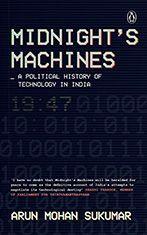
Midnight’s Machines: A Political History of Technology in India
Though India’s prime minister, Narendra Modi, talks a lot about his country’s emerging role in the global tech economy, the idea of Indian modernization of course goes back decades and is complicated by its use as a political tool. Arun Mohan Sukumar, F13, head of the Technology Initiative at the think tank Observer Research Foundation in New Delhi and a current doctoral student at Fletcher, dives deep into this largely failed history and its players in this erudite work. Sukumar takes as his starting point India’s 1947 independence from Great Britain.

Catland
In this book, ostensibly for children, Susan Banki, F01, F07, tells a story in rhyme of a “big orange lion” who one day appears in Catland to tinker with the cats’ “enormous machine,” a purple contraption that looks suspiciously like the U.S. Capitol. The lion believes the machine’s “a check on his power,” blocking the attention and control he seeks. “In no time he nearly destroyed the machine,” Banki writes, “declaring each day that his own paws were clean.” If this is starting to sound familiar, you won’t be surprised to find the lion had “partners to drum up great fear, with mad tweeting birds and a fox in his ear.” No spoilers here but suffice it to say Banki ends on a hopeful note. Her husband, Joshua McConnell, contributes colorful, spot-on illustrations.
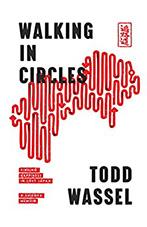
Walking in Circles: Finding Happiness in Lost Japan
Every year, thousands of henro (pilgrims) travel the four prefectures of Shikoku, the smallest of Japan’s four main islands, visiting 88 temples on a 750-mile route. Not many of them do it on foot, but this book chronicles the second time travel writer and international development pro Todd Wassel, F06, took on that challenge. At a crossroads in his life, having finished grad school with no clear idea of a career path, he slept outside during the rainy season to “find” himself. His account of the monthlong journey is filled with verbal snapshots of engaging characters, hardships, and small triumphs that he says have ultimately freed him from the expectations of Western culture.
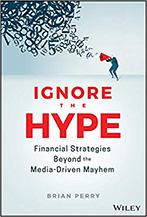
Ignore the Hype: Financial Strategies Beyond the Media-Driven Mayhem
In his first book, From Piggybank to Portfolio, Brian Perry, F09, executive vice president at Pure Financial Advisors in California, introduced newbies to the concepts of money management. In this new one, he continues in the easygoing writing style that makes complicated concepts seem simple but talks to a larger audience, which includes not only novices but also those who have been in the markets for a while. He shows readers how to play even though the game is rigged, spot fallacies and biases that may be holding them back, and, perhaps most crucially, “survive a bear attack.”
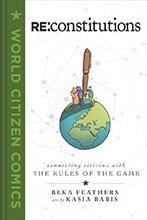
RE:Constitutions: Connecting Citizens with the Rules of the Game
Beka Feathers, F10, a legal advisor who has worked in more than a dozen countries, often helping to draft constitutions, uses simple, conversational language and examples from around the globe to explain the bedrock of citizenship in graphic novel style. She conveys the ideas through the story of Marcus, a young American who must write a paper on “what citizenship means” in order to get college credit for his summer volunteer work. As he talks to the book’s many other characters, Marcus comes to understand how important a constitution is to so many aspects of daily life, including fair representation. With inviting illustrations of family and neighborhood life by Polish cartoonist and political activist Kasia Babis.
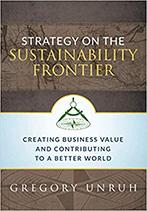
Strategy on the Sustainability Frontier: Creating Business Value and Contributing to a Better World
Gregory Unruh, F99, the sustainability editor at MIT Sloan Management Review and the Arison Endowed Professor of Values Leadership at George Mason University, traces the start of sustainability values driving business practices to 1995, when Greenpeace upended Royal Dutch Shell’s plans to scuttle an oil rig in the North Sea by raising a massive fuss. Now, he writes, pressures from both civil society and the market require businesses to innovate for a sustainable future. This book is a guide to making and keeping sustainable businesses profitable through six C’s, each the name of a chapter: clarity, commit, create, collaborate, capture, and contribute.

I Am Sophia
This first novel, from J.F. Alexander, F00, writer-in-residence at Trinity Episcopal Cathedral in San Jose, California, is set in a future extrapolated from current trends: Society is almost completely secular, with even greater income disparities and political fragmentation than we have today, more ecological challenges, and continued problems with addiction (to technology rather than opioids). The story follows Peter, the leader of a fringe religious group, as he contemplates what to make of Sophia, a woman who may be mentally ill or may be the messiah. A sci-fi twist takes the pair to a colony on the planet Meres, where their lives intersect with those of 10-year-old Russ and his family, who have emigrated to escape the troubles on Earth.
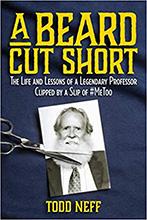
A Beard Cut Short: The Life and Lessons of a Legendary Professor Clipped by a Slip of #MeToo
When writer Todd Neff, F00, was doing his undergraduate work at the University of Michigan, he got to know John Rubadeau, an award-winning senior lecturer in English whom he describes on his website as his “writing teacher and eternal mentor and friend.” In 2018, the beloved but irreverent professor was fired after more than three decades of service, a controversial decision that the union for non-tenure-track faculty opposed. At the time, Neff and Rubadeau were beginning a collaboration on a Strunk and White–style book, which instead became YouTube’s Grammar Geezers, while Neff turned Rubadeau’s story into this thought-provoking biography/memoir of confrontational speech versus changing campus sensibilities.
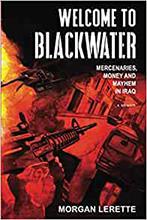
Welcome to Blackwater: Mercenaries, Money and Mayhem in Iraq
In 2007, when 17 Iraqi civilians were killed and 20 more injured in Baghdad’s Nisour Square by four Blackwater Security Consulting employees, Americans were suddenly introduced to the shadowy world of private military contractors. Morgan Lerette, F13, who worked for Blackwater for 18 months starting in 2004, goes beyond the headlines in this memoir, which focuses less on the war on terror or the questions raised by hiring mercenaries and more on the day-to-day lives of Blackwater staff. The men bond over prostitutes, porn, getting wasted, and swearing a lot. There are some touching and horrifying moments and plenty of insight into the generally lawless atmosphere, but what the book really illuminates is how some men can act when polite society isn’t watching.
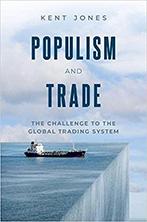
Populism and Trade: The Challenge to the Global Trading System
Brexit, the election of Donald Trump, and smaller global economic shockwaves signal that trade liberalization, piloted by U.S.-led multilateral trade rules developed after World War II, “appears now to have run its course” for the time being, according to Kent Jones, F79, a professor of economics at Babson College. In this timely book, he explores the impact of protectionism and suggests the ways education and economic and institutional reforms may be able to “break the populist fever” and usher in a return to the more global policies needed to address issues like the pandemic, which are an unavoidable part of the modern world.

The Prophet’s Heir: The Life of Ali Ibn Abi Talib
Ali Ibn Abi Talib was a cousin and son-in-law of the Islamic prophet Muhammad as well as his “most trusted person and strongest defender,” according to Hassan Abbas, F02, F08. Ali would become caliph a quarter-century after Muhammad’s death, but the battle over whether he was the prophet’s true spiritual successor would cause a permanent rift—between Sunnis and Shiites—in the world’s second-largest religion. In this scholarly biography, which at times reads like a novel, Abbas looks at both sides of the argument and reveals Ali’s legacy and teachings amid the politics that often overtook them.

